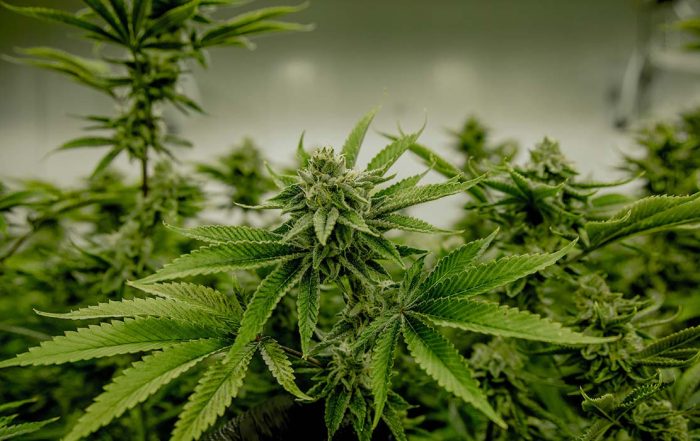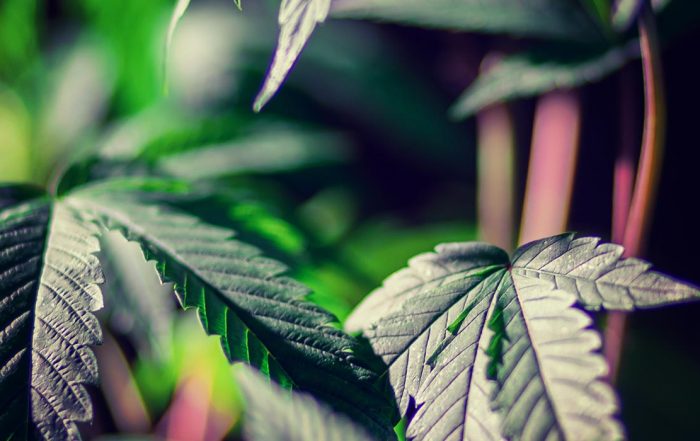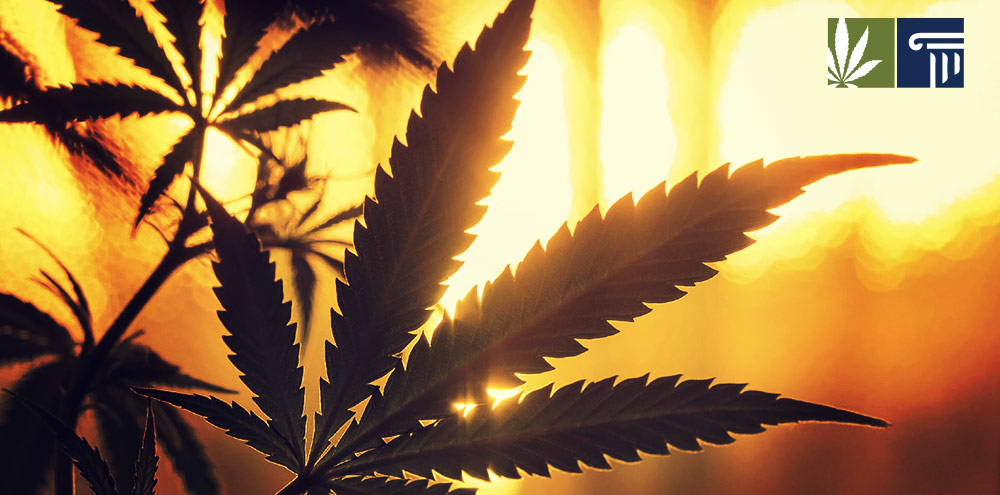Florida Marijuana Laws
Florida allows medical marijuana use for a range of qualifying conditions. Patients can purchase a 35-day supply of smokable cannabis or a 70-day supply of products in other forms from a licensed dispensary. The regulations prohibit personal cultivation and possession of more than 4 ounces of marijuana.

LAW BREAKDOWN
LAW BREAKDOWNS
The Sunshine State is not lenient when it comes to marijuana laws. Florida has legalized medical marijuana for a range of debilitating conditions, and while recreational use remains illegal, some local municipalities have decriminalized possession of small amounts.
Possession
It is a misdemeanor in Florida to possess 20 grams of cannabis or less, and the top penalty is 1 year in jail and $1,000 in fines. Possession of more than 20 grams is a felony. Possession of between 20 grams and 25 pounds is punishable by up to 5 years in prison and $5,000.
When the amount is between 25 and 2,000 pounds, there is a mandatory minimum of 3 years in prison, a maximum of 15, and fines of up to $25,000. For quantities of between 2,000 and 10,000 pounds, the minimum prison term is 7 years, the maximum is 30, and the top fine is $50,000. And finally, for possession of more than 10,000 pounds, an extremely high amount, the penalty is between 15 and 30 years in prison and up to $200,000 in fines.
Possession of fewer than 25 marijuana plants is also a felony and carries a maximum sentence of 5 years in prison and $5,000. When the number of plants being cultivated is between 25 and 300 plants, the maximum penalty increases to 15 years in prison and $10,000 in fines.
When the offense involves more than 300 but less than 2,000 plants, a mandatory minimum of 3 years applies, the maximum jail term is 15 years, and the top fine is $25,000. And lastly, when the number of plants cultivated is between 2,000 and 10,000, penalties include between 7 and 30 years in prison and up to $50,000 in fines.
Extra penalties apply for possessing any of the above quantities within 1,000 feet of a school, college, park, and certain other specific areas. This felony comes with a top sentence of 15 years in prison and fines of up to $10,000.
| Offense | Penalty | Incarceration | Max. Fine |
|---|---|---|---|
| 20 grams or less | Misdemeanor | 1 year | $ 1,000 |
| More than 20 grams – 25 lbs | Felony | 5 years | $ 5,000 |
| More than 25 – less than 2000 lbs | Felony | 3* – 15 years | $ 25,000 |
| 2000 – less than 10,000 lbs | Felony | 7* – 30 years | $ 50,000 |
| 10,000 lbs or more | Felony | 15* – 30 years | $ 200,000 |
| Less than 25 plants | Felony | 5 years | $ 5,000 |
| 25 – 300 plants | Felony | 15 years | $ 10,000 |
| 300 – 2,000 plants | Felony | 3* – 15 years | $ 25,000 |
| 2000 – 10,000 plants | Felony | 7* – 30 years | $ 50,000 |
| Within 1000 feet of a school, college, park, or other specified areas | Felony | 15 years | $ 10,000 |
| * Mandatory minimum sentence |
Scroll to see the rest of the table.
Sale
Selling 20 grams of cannabis or less is a misdemeanor if nothing else of value changes hands, and it comes with a maximum penalty of 1 year in jail and a $1,000 fine.
Sale of between 20 grams and 25 pounds is a felony and is punishable by up to 5 years in prison and $5,000 in fines. If the weight is between 25 and 2,000 pounds, the penalty increases to at least 3 years in prison and as many as 15, plus $25,000 in fines.
If the amount is between 2,000 and 10,000 pounds, the penalty is at least 7 years in prison and at most 30, plus $50,000 in fines. If the amount is greater than 10,000 pounds, the sentence is 15 to 30 years in prison and $200,000 in fines. Sale within 1,000 feet of a school, park, or other restricted area comes with a top penalty of 15 years in prison and a fine of up to $10,000.
| Offense | Penalty | Incarceration | Max. Fine |
|---|---|---|---|
| 20 grams or less without remuneration | Misdemeanor | 1 year | $ 1,000 |
| 25 lbs or less | Felony | 5 years | $ 5,000 |
| More than 25 – less than 2000 lbs (or 300 – 2,000 plants) | Felony | 3* – 15 years | $ 25,000 |
| 2000 – less than 10,000 lbs (or 2000 – 10,000 plants) | Felony | 7* – 30 years | $ 50,000 |
| 10,000 lbs or more | Felony | 15* – 30 years | $ 200,000 |
| Within 1000 feet of a school, college, park, or other specified areas | Felony | 15 years | $ 10,000 |
| * Mandatory minimum sentence |
Scroll to see the rest of the table.
Concentrates
Hashish and other marijuana concentrates are treated more harshly than dried cannabis flower. Possession, sale, manufacture, or delivery of any amount is a felony punishable by up to 5 years in prison and $5,000.
| Offense | Penalty | Incarceration | Max. Fine |
|---|---|---|---|
| Possession of hashish or concentrates | Felony | 5 years | $ 5,000 |
| Selling, manufacturing or delivering | Felony | 5 years | $ 5,000 |
Scroll to see the rest of the table.
Paraphernalia
It is a misdemeanor to possess any kind of drug paraphernalia in Florida. The maximum penalty is 1 year in jail and $1,000 in fines. Drug paraphernalia includes all items intended for use in the inhaling, ingesting, cultivating, processing, packaging, testing, storing, and transporting of marijuana.
| Offense | Penalty | Incarceration | Max. Fine |
|---|---|---|---|
| Possession of paraphernalia | Misdemeanor | 1 year | $ 1,000 |
Scroll to see the rest of the table.
Miscellaneous
Conviction causes a driver’s license suspension for a period of 1 year.
Medical Marijuana
MEDICAL MARIJUANA
Medical marijuana use is legal in Florida, allowing qualifying patients to legally purchase and possess marijuana for any of a list of conditions.
QUALIFYING CONDITIONS:
- ALS
- Cancer
- Crohn’s disease
- Chronic nonmalignant pain*
- Epilepsy
- Glaucoma
- HIV/AIDS
- Multiple sclerosis
- Parkinson’s disease
- PTSD
- Seizures
- Terminal illness (patients diagnosed with no more than 12-months to live)
- Other debilitating medical conditions comparable to those enumerated *Defined as “pain that is either caused by or originates from a qualifying medical condition”
PATIENT POSSESSION LIMITS:
Qualified patients are legally permitted to possess medical marijuana provided by dispensaries licensed by the state. A qualified physician cannot issue a physician certification for more than three 70-day supply limits of marijuana.
HOME CULTIVATION:
No
STATE-LICENSED DISPENSARIES:
Yes
CAREGIVERS:
Yes. A caregiver must be at least 21 years of age, must have agreed to assist with a patient’s medicinal use of marijuana, and must have obtained a caregiver ID card from the Department of Health. The Department may place limits on the number of patients a caregiver can assist, and the number of caregivers that can assist a single patient.
RECIPROCITY:
No
Florida Marijuana Attorneys
The following Florida lawyers are actively involved in the practice of cannabis law:








